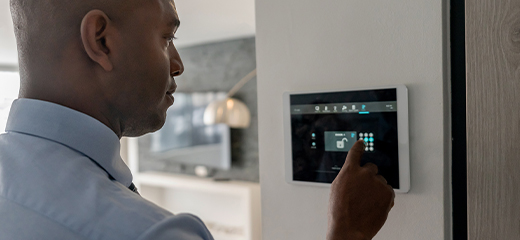
Pros and cons of working from home
While the concepts of remote work, working from home, flexitime and commuting are not new; South Africa has only seen a real move to remote work as a result of the Covid-19 pandemic and the various lockdowns put in place by government.
If you’ve been offered the opportunity to work from home and are wondering if it’s the right option for you, consider the following pros and cons.

Pros of working from home
- Reduced travel: Cutting out the daily commute to and from work will give you more time to spend on the things you want to do while significantly reducing your transport costs.
- Greater flexibility: Unless you are required to take calls or respond to queries for pre-determined blocks of time, working from home can give you greater flexibility to work at your own rhythm and get things done.
- Fewer workplace distractions: Say goodbye to impromptu meetings, watercooler chats and colleagues interrupting your thought process.
- More independence: With less oversight comes greater opportunity for initiative.
- Productivity: Greater flexibility means that you can take advantage of the times when you are personally more productive.
- Family time: Spending more time at home means you can put more into your family relationships and keep a closer eye on how your children doing.
- Personal time: Seeing the dentist, putting in a load of washing, picking the kids up from school or dashing out to do the shopping is much easier when you are in close proximity.
- Working environment: If you’re not keen on the daily dressing up for work or you like your creature comforts, you will find working from home far more comfortable.
- Attendance: Whether it’s being late for work because of traffic or having to take time off because you’re sick, you’ll find that with greater flexibility comes less need for work absences.
- Workplace politics: If the office grapevine or politics aggravates or gets you down, you’ll find the freedom of working at a distance a dream.

Cons of working from home
- Additional costs: While you’ll be saving on transport costs, you can expect to see a rise in your electricity bill, internet costs and household requirements, such as additional coffee.
- Productivity: Without careful management and monitoring, it is not uncommon for remote workers to either underdeliver or overwork. Both situations result in considerable stress as the work/life balance suffers.
- Distractions: With no one looking over your shoulder to make sure you are working, you could find it difficult to resist the lure of children, pets, TV, entertainment, social media and more.
- Motivation: Without the day-to-day engagement with your team and colleagues, you might feel that your contributions are not recognised and see a drop in motivation.
- Isolation: Working from home will cut your in-person interaction with others significantly. If you don’t have a rich social life, you might find yourself feeling isolated and becoming depressed.
- Unreliable connectivity: If the internet access in your area leaves a lot to be desired you may find working from home frustrating.
- Loadshedding: You’ll have to decide how you’re going to deal with loadshedding and other power outages, particularly if your employer isn’t willing to contribute towards a battery backup or generator.
- Access and escalation: You may not have access to the same software, information and technology you had in the office and find that requests for assistance take longer when compared to asking in person.
Interested in backup power for your home?
Head to LookSee for a range of quality power solutions with convenient financing options.
Related articles:









